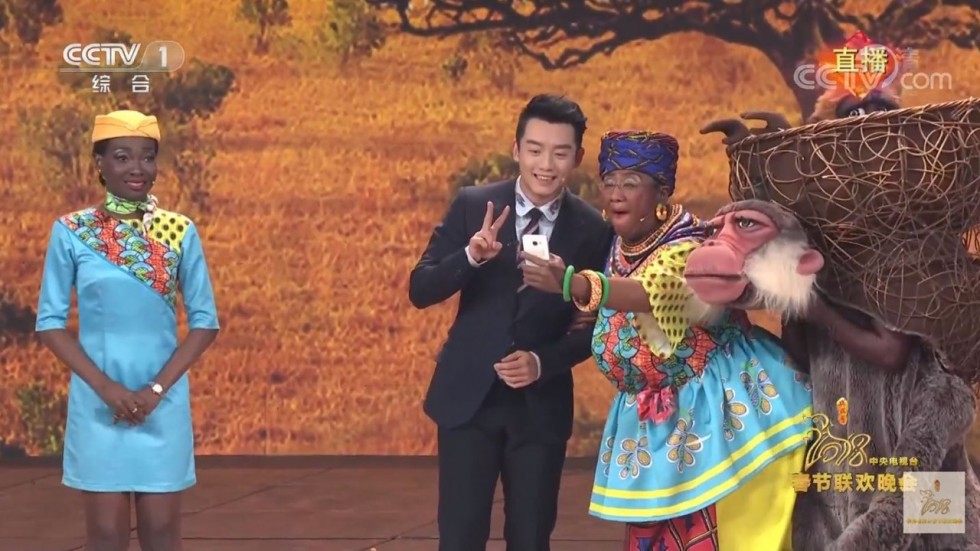What is the real purpose of the Chinese New Year Gala?
It’s a common, tried and true tradition during the Chinese New Year break to gather together with extended family, catch up with each other, eat some good food, and also to routinely laugh at the annual Chinese Lunar New Year Gala.
And somewhat regrettably, I do mean laugh at.
The gala in question has often found itself in some rather awkward scenarios. Consider the latest one just this year: the Gala hosted a skit portraying a character in, what appeared to be, blackface. Now, while it wasn’t the traditional “blackface” of the West — a deeply offensive tool of racial propaganda from the nineteenth century, it was still rather uncomfortable to watch.
But unintentional racism aside, this particular skit in question actually raises another issue of far greater significance in relation to the very core of the Gala—namely, what the very purpose of the entire event truly at its heart stands for. The skit has in its jarring insensitivity brought to light just how much the advertised theme of the event differs from its true theses.
Let us begin with a brief summary of the skit in question. The play tells the story of a Chinese man in Kenya, there to supervise the building of a railroad through a local village, much to its occupants’ collective delight. While there, he finds himself caught up in a confusing and, admittedly, somewhat amusing debacle concerning a local woman who proposes a fictitious marriage with him so as to avoid the marriage arrangements of her mother. The setup is fine — it appears to be an entertaining, slightly awkward story about a Chinese man trying to find his way around the confusion of a household in turmoil, all while struggling to understand (a rather fanciful portrayal of) local Kenyan culture. Traditionally, Chinese New Year-based themes of familial unity are introduced, supplemented by a celebration of a foreign culture. All is well. Granted, the initial premise of a Chinese man helping the Africans in Kenya build a railroad is slightly close to patting oneself on the back, but that can be overlooked as it initially has little to do with the story. Finally, however, in the most climactic moment, it is revealed that the Kenyan female lead was avoiding the possibility of her mother arranging a marriage for her because she wishes to travel to China to study, something her mother reveals she is very much in favor of. She then cites how much China has helped Kenya, before concluding with a loud declaration: “I! Love! China!”
Now, there are numerous things that make this somewhat uncomfortable to watch. For one there is the downright bizarre depiction of Kenyan life, complete with taxis that are literally giraffes as well as baggage-carriers that are actually monkeys. Then there is the matter too of the female lead’s mother, who is the character played in blackface. Though not depicted in a way that is particularly demeaning of the Kenyans (Chinese New Year Gala performances have almost always included jabs at certain groups, such as the elderly), it does seem to fit visually with the “mammy” archetype from minstrel-era American blackface performances. And of course, there is also the perturbingly imperialistic undertones suggested by having a member of an African nation in pseudo-blackface declaring how much she loves China.
However, setting aside all the racial insensitivity, there is a particular thematic issue that has consistently proven to be a problem for the Chinese Gala’s performances, and that is how politicized the skit is. Now while this may not come as a surprise given the Gala’s history of intensely patriotic performances, it is important that we examine deeper precisely what the purpose of this particular skit was. What is the primary theme or intent of this performance? Ultimately, given the premise of a Chinese man helping to set up a railroad in Kenya as well as the final, less than subtle monologue of loving China, it seems that the thesis here is to demonstrate how much China prides itself on helping African countries like Kenya, Zimbabwe, and such. It is a celebration of China’s exploits in Africa.
Now here’s the question in all this: why, in the first place, is the Gala being used to promote China’s international relations? Or better yet, let us go one question further: what is the actual purpose of the Gala? Is it really supposed to be a platform for China to discuss its foreign policy? The way the Gala is marketed to people — indeed they even did an entire routine on it this year — is that it exists to bring families together, to celebrate the sense of familial togetherness that the Chinese Lunar New Year is all about. As Kevin Zhou (11C) states, “Most people are already really enthusiastic about the break and meeting family and friends and such, and I feel that the Chun Wan [the Chinese Lunar New Year Gala] event really kind of helps to extend that feeling in the general public…in a sense, [it promotes an element of [the] family].”
This is the traditional understanding of the themes pertaining to the Chinese New Year, and thus to the New Year Gala — it is something well-understood by many. Governmental foreign policy exploits, however, are not conducive to this message. It detracts from the actual concept of bringing families together to enjoy a performance of traditional Chinese culture, and especially given the inane insensitivity of the performance in question, all this really does is indicate how far the Gala has deviated from its stated purpose. If the Gala wishes to assume a more genuine and thus more likable and charming guise, it must be willing to return to those themes that truly make it, and the Chinese New Year, so vital to Chinese culture.
Featured image – Screen Capture from Chinese Spring Festival Gala via Youtube screenshot

